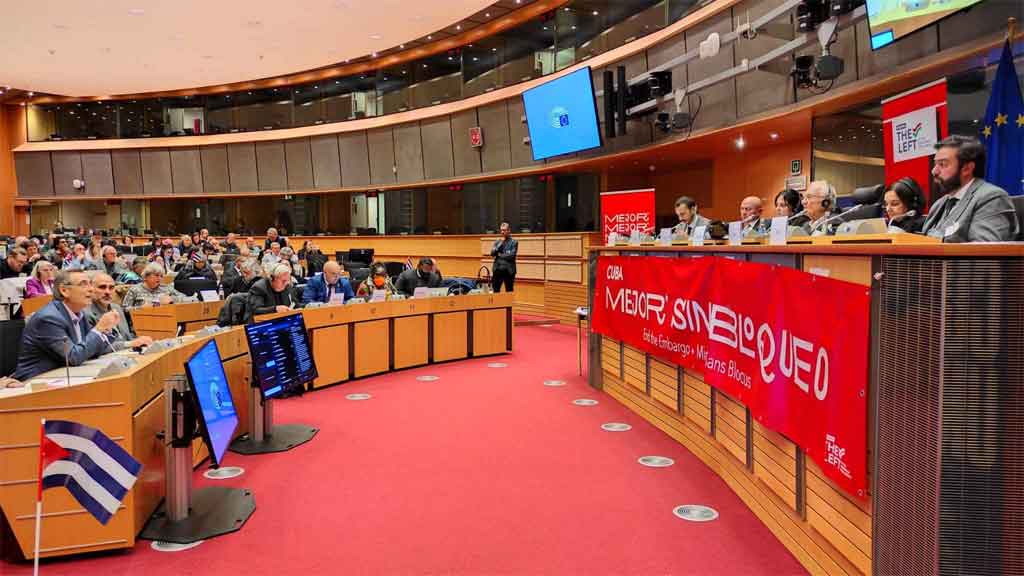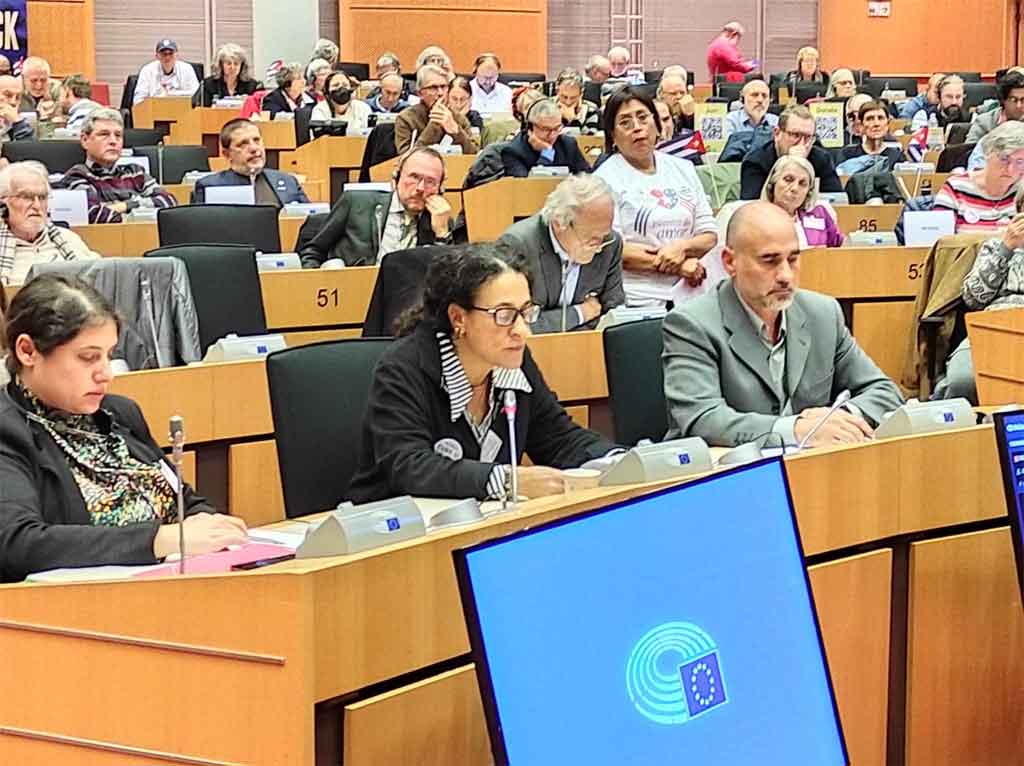On the second and last day of the court, the testimonies were focused on the difficulty of making transfers to Cuba. “It is enough that the word “Cuba” is in the operation, whether as a destination, sender or subject,” the Swiss Cuba Association stated in court.
The secretary of the Belgian Coordination against the blockade, Wim Leysens, warned that the laws and sanctions imposed by Washington are complied with on European soil, which he questioned and rejected. He also presented several examples, including the refusal of a bank to accept payment to a shipping company for sending a container loaded with solidarity cargo to Cuba.

The president of the National Italy-Cuba Friendship Association, Marco Papacci, exposed cases of rejected transfers, even for humanitarian reasons after the passage of hurricanes or the occurrence of accidents.
The president of the Cuba Solidarity Network in Germany, Angélika Becker, shared situations in Germany that demonstrate the extraterritoriality of the blockade and its impact on commercial, associative and individual relations with Cuba.
Manolo García, representative of the State Movement of Solidarity with Cuba in Spain, gave yet another testimony: “The siege imposed by Washington is toughened in the face of disasters, exposing itself for what it is, a cruel and inhumane policy,” he stated.

Several witnesses addressed the importance of exerting greater pressure on the European Union to demand that the United States end the blockade and apply the instruments available to protect companies, banks and citizens from the extraterritorial component of the policy.
jrr/llp/jha/wmr









